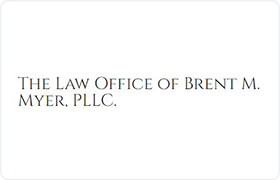 Hobe Sound Credit & Debt Lawyers, Florida
Hobe Sound Credit & Debt Lawyers, Florida
Sponsored Law Firm
-
 x
x

Click For More Info:
-
Law Office of Brent M. Myer, PLLC
27 SE Ocean Blvd Stuart, FL 34994» view mapBankruptcy & Debt Your Local Bankruptcy Attorney
Brent M. Myer has over 15 years of consumer bankruptcy experience and has represented both debtors and creditors in the past.
772-873-7794
Lawyers
1-4 of 4 matches
Litigation, State and Local, Employee Rights, Corporate, Credit & Debt
Bankruptcy & Debt, Fisheries & Wildlife, Landlord-Tenant, Credit & Debt



 Brent Myer Stuart, FL
Brent Myer Stuart, FL Practice AreasExpertise
Practice AreasExpertise